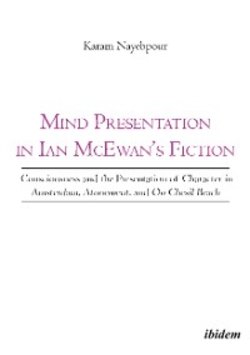Читать книгу Mind Presentation in Ian McEwan's Fiction - Karam Nayebpour - Страница 8
1.1 Reading McEwan as a Cognitive Novelist
ОглавлениеMcEwan's fiction has evolved thematically and technically during the nearly four decades of his writing career. He »has been considered [a] shocking« writer in his early career and a »serious and contemplative novelist« (Childs, The 2) with respect to his later work. In his later novels, McEwan has paid close attention to the presentation of fictional minds. He uses the omniscient third person narrative mode in AM (1998), AT (2002), Saturday (2005), CB (2007) and Solar (2010) as well as diverse consciousness (re)presentation[7] methods—direct thought, indirect thought and particularly free indirect thought (FIT). These techniques allow him to report focalised characters' inner perceptions in order to involve the reader in the mental functioning of the fictional characters. With their high degrees of fictionality and narrativity,[8] moreover, these narratives are potential to anchor themselves firmly to the readers' real world knowledge, experience and mental models, or to their so-called frames and scripts. Therefore, McEwan can be considered as a cognitive novelist.
McEwan's central narrative themes and techniques, according to Angus R. B. Cochran, should not be analysed apart from
a tradition of twentieth-century European novelists who took it upon themselves to expose the cynicism and corruption of government, patriarchy, class division and nationalism. Furthermore, his influences—Kafka, Woolf, Joyce—proposed that individual psychology was inextricably bound up with such large-scale social forces. (407)
One should also include in this list of influences Henry James as »something of a mentor.« McEwan, however, as Brooker adds, has »imaginatively engaged with the politics of the present« (53, 54) in his works. Exploration of the individual psychology becomes central in McEwan's later fiction in which he primarily »illuminates the cavernous makeup of the mind by using his own instrument, his penetrating prose. The place he discovers there is both dark and elegant« (Cochran 407). Even though this statement by Cochran predates the novels discussed in this study, it fits them as well. They are predominantly concerned with the representation of the fictional characters' mental functioning. Moreover, they explore the destructive impact of fictional minds' intramental thoughts on their inter-personal relationships. Likewise, McEwan, according to Wells,
combines a contemporary sensibility about the power and limitations of narrative with a keen sense of his characters' inner lives and their struggles to deal morally with one another. His work demonstrates an impressive variety of generic styles and a wide historical range while consistently providing his readers with points of identification and reflection about their own lives. (»Ian McEwan« 252)
Through presentation of their mental functioning, McEwan's consciousness narratives present the characters' inner lives showing the nature or mode of their thoughts and the way(s) they deal with the other fictional minds. As Matt Ridley states, »The novelist's privilege, according to Ian McEwan, is to step inside the consciousness of others, and to lead the reader there like psychological Virgil« (vii). Similarly, McEwan in AM, AT and CB steps inside the central characters' consciousnesses and in this way enables the reader to compare and contrast the presented perspectives.
